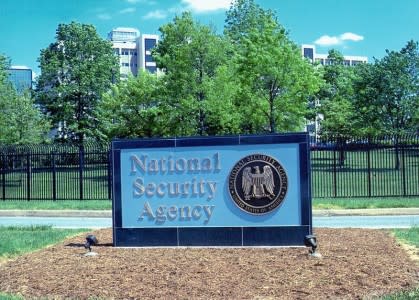Waning chance for review of NSA spying
For the second time this year, the Supreme Court on Monday sent an implied message that it is going to be very difficult to get a public review in court of the National Security Agency’s power to conduct global sweeps of telephone and electronic communications.
In the meantime, that means that any judicial check on that program has to come from a special federal court that does almost all of its work in secret – the Foreign Intelligence Surveillance Court. But that court already has indicated, in a handful of its documents that have been made public, that it is satisfied that the NSA has the authority to carry on widespread wiretapping in search of terrorist activity.
Judges of that court have decided that the program neither violates the Constitution nor any federal law bearing on the surveillance.
Although there are now four new cases in regular federal courts seeking to test NSA’s powers, the Justice Department has been making a sustained effort to head off those challenges with a series of arguments, many of which are claims of procedural defects, including claims that the individuals or organizations who have sued have no right to bring their cases in court.
Although the Supreme Court, in a decision in February, had issued a ruling that insulated the surveillance program from court review, that was before former NSA analyst Edward Snowdon had publicly released a vast array of formerly secret documents – including a number o opinions of the secret intelligence court – showing how far-reaching the NSA’s wiretapping had extended, including some data-gathering from telephones and computers within the U.S.
The sweep of the program led lawyers for advocacy organizations – whose officers and staff members regularly use the telephone and send e-mails – to contend that they had begun to curtail their communications because they believed they almost certainly had been monitored. Before the Snowdon revelations, they really had no evidence that they actually were targeted, and that lack of proof was what had led the Supreme Court to turn aside the challenge last February.
Based on the Snowdon revelations, a privacy advocacy group – the Electronic Privacy Information Center – went directly to the Supreme Court, asking the Justices to order a judge of the secret court to withdraw an order (released by Snowdon) that authorized telephone data-gathering from a division of the Verizon telephone and Internet company. As Verizon customers, EPIC argued, they very likely had been monitored by NSA.
The Justice Department urged the Justices not to hear that claim, saying it did not meet the legal standards for the extraordinary action that EPIC was seeking and, besides, the Supreme Court had no authority to review the secret court’s work in a case filed only by a telephone customer.
Without giving any reasons, the court refused to hear EPIC’s plea, leaving it with no alternative but to attempt to start a new case in a lower federal court.
That was only one of two events on Monday arising out of the NSA spying, illustrating the barriers to regular judicial review of the surveillance.
Two hours after the court turned down EPIC’s case, a judge in a federal District Court not far from the Supreme Court held a hearing at which Justice Department lawyers argued that the challengers in that case – an advocacy group named Judicial Watch, and some of its officers – had no right to be in court. They had no dependable evidence that they were targeted by NSA, and the particular telephone service to which they had signed up was not even monitored by NSA, the department contended.
Even if they had a right to sue, the government has contended in this and other new cases against NSA, they could not win their challenge, because the NSA data sweep only involved the business records of telephone companies, and the Fourth Amendment does not give telephone customers any control over those records, or any right of privacy in what those records show.
That second argument exactly reflects the constitutional view that judges of the secret intelligence court have themselves concluded. In fact, government lawyers have noted in court filings in NSA cases, 14 different judges of the surveillance court, “on 34 separate occasions have approved orders” like the ones that have been publicly disclosed and that are now facing new challenges in the regular courts.
Although there does remain a chance that, at some point, the Supreme Court may decide that the time had come to review NSA’s authority, it is not yet clear who would be in a position to take a test case to the Justices.
The most likely possibility would seem to be a criminal case in which some of the evidence that prosecutors will be using came from NSA wiretaps, and the individuals accused in such a case might be able to pursue constitutional challenges – provided that the evidence was crucial to any conviction that resulted. The Justice Department, in a recent change of policy, has begun notifying accused individuals who were, in fact, monitored by the NSA wiretaps. It is not clear when such a case might reach the Supreme Court.
Lyle Denniston is the National Constitution Center’s adviser on constitutional literacy. He has reported on the Supreme Court for 55 years, currently covering it for SCOTUSblog, an online clearinghouse of information about the Supreme Court’s work.


